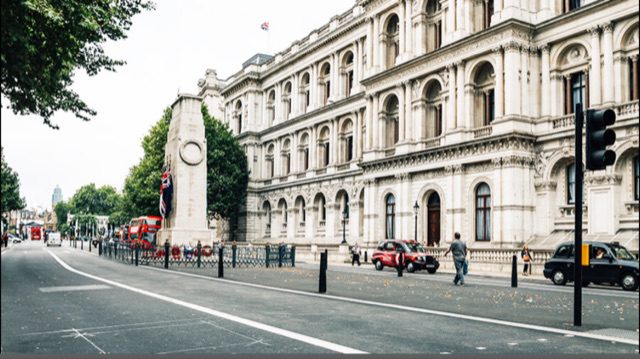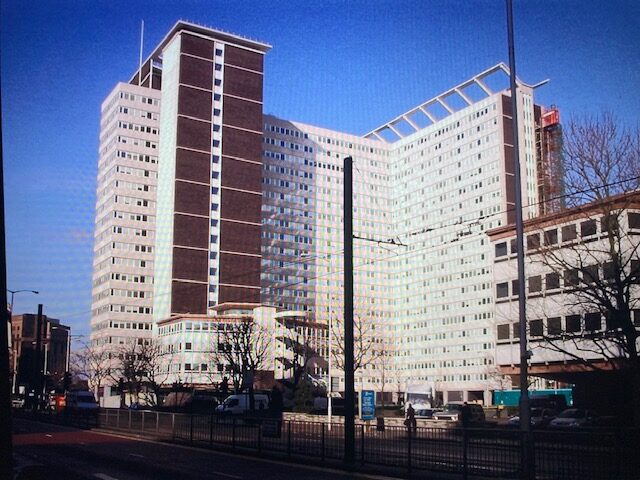Out of the Camp Ch. 20 – The Defection
With the waiting came the not knowing, not knowing the outcome of all of this drama and with the tension came the paranoia. Masha would sit indoors afraid to approach any window, let alone tweak any curtain to take a peek outside. She wouldn’t dare touch the telephone, certainly wouldn’t answer it when it rang. Being in the house alone didn’t help. Once or twice there were callers who came to the door but Masha didn’t dare look out the window and certainly wouldn’t answer it. Mary and I, of course, were at work (the offshore exploration, construction and pipeline industries were still roaring!), the kids were at school and so, to alleviate the boredom and relieve the tension, Masha learned to cook some western dishes, and spaghetti Bolognese using Mary’s recipe with the secret ingredient was the first. I know she was a great reader so assume that she also would have passed much of the time probably reading English and Irish writers. Mary, a native of County Cork, Ireland was, thanks to the Nuns, a voracious reader, and the house was always full of books and so there would never be a dearth of reading material. Also, if I remember correctly, there were only three television channels available at that time, with Channel 4, Britain’s fourth terrestrial station starting the following year. Cable and satellite TV were, at that time, in their infancy and not widely available in the UK, and of course, despite Berners-Lee’s best efforts, all of this was pre-World Wide Web. So, compared with today, Masha’s options for entertaining distractions were pretty limited.
This situation lasted a few weeks, and I don’t now recall from whom we got word of the first positive development in legalizing Masha’s residency status in the UK. A hearing had been set up with the immigration authorities at Lunar House, Croydon, which is a division of the British Home Office, and houses the headquarters of UK Visas and Immigration. When appointment day duly arrived, I drove both Masha and Mary to Croydon arriving in good time for Masha’s appointment. Lunar House is a 20-story office block, soulless, forbidding and, ironically, almost Soviet in appearance, and when we walked into the sprawling waiting area, my heart sank. It seemed chaotic with hundreds of people milling around and standing in groups. At first there didn’t appear to be much order but after a while we located an enquiry section and joined the queue. We didn’t have long to wait there, but having been directed to an inner office in a section dealing with political asylum and other such matters, we were directed to another waiting area and, it felt, abandoned for almost 90 minutes before Masha was eventually called in.
Mary and I were told to remain in the waiting area where we sat for a further 90 minutes to two hours. When Masha finally emerged, she was very quiet and pensive, and nothing much was said until we got back into the car. Whereupon Mary could contain herself no longer. “Well?” She said, “What happened, how did it go?” Masha smiled. “I think it went well,” she said. “After they had all my basic information, they asked me to account for my views and give my life history from kindergarten at 3 years old, up until going to University. They interrupted me many times with questions, asking for clarification about something I said or requiring me to elaborate on this or that, or some other issue. They were very thorough and probing. I think they might have been trying to trip me up on one or two occasions, but it didn’t trouble me. I actually felt quite relaxed in their company. I felt they were just doing their job and not at all trying to intimidate or frighten me. Actually, later on in the interview they asked me what I would do if I weren’t allowed to stay in the UK. To which I replied (all the time dying on the inside but trying to appear firm outwardly) that then I would go to the American Embassy. At this they exchanged glances but neither spoke.”
That evening Irina and Dima came over, Irina anxious to know how the interview had gone. As Masha and Mary brought Irina up to date with developments, Dima asked if he and I could go into another room. He wanted to talk to me about his plans. I knew of course about his Air Force background and flying such planes as MiG-15s and Czech L29s, but in another earlier life, he had been a Wall of Death rider. I remember thinking at the time that, bloody hell! that was quite a transition. I thought I had some vague idea what the Wall of Death was, but I wasn’t sure as there were none that I knew of in the UK at that time. He had decided that he was going to build one and take it on the road. He had found a yard in Fulham where he was going to be able to build it. He had wanted help with something – he certainly was going to need assistance building the Wall and I couldn’t help him there – but I can’t, after all this time, now remember what else it was that he wanted to ask me and, in fact, we didn’t see him again for quite some considerable time. Irina kept us up to date from time to time on his activities and, indeed, Dima was kept fully occupied for several months in Fulham building the Wall.
About 10 days following Masha’s residency hearing, she received a letter from the Immigration Department giving her “Leave to Stay” in the UK but, she was disappointed to note, not Political Asylum which meant that she was still “Stateless” and could be picked up without warning by Soviet Authorities at any time. Two or three days later in the early hours of the morning at around 1.00 am there was a knock on the front door. I jumped out of bed, grabbed a dressing gown and ran downstairs. As I looked through the glass, I could see three young people, two girls and a boy, all in their early 20s, and a middle-aged man in an overcoat standing just behind them. I unlocked the door and as I opened it, one of the girls immediately and anxiously apologized for the lateness of their visit and explained that one of their group had gone missing. I recognized two of them from the party, but the adult was not at all familiar and, strangely, didn’t open his mouth the entire time they were there. The girl asked if Masha was staying with us and I told her she wasn’t. She then asked if I or my wife had seen her since the night of the party, and I again lied that we hadn’t. I asked them why they had come here and particularly at this hour. I don’t honestly recall the response, but the entire exchange was very short and couldn’t have lasted more than three or four minutes. As they left, the girl who had done all the talking apologized once again.
It seems that around the same time that this encounter took place, the Soviet Embassy in London was harassing the Immigration and Visas Department at the Foreign Office. Apparently there had been several escalating exchanges between them which culminated in threatened charges of abduction and kidnapping being lodged against the British Government if the situation wasn’t resolved and the girl returned to Soviet Authorities. Masha received a couple of calls from the Department about this and on the third, they asked if she was willing to meet with Soviet Officials in Whitehall at the Foreign Office to reassure them that she was safe and had made the decision to stay without being pressured and on her own volition. She asked if they would protect her and was reassured that the Soviets couldn’t do anything and that she would be safe in a UK government building. She responded, asking, “But what about after I leave? Will the British police protect me?” They responded, “Hmm! Well, now that you mention it, we can’t really protect you because you’re now stateless.” At that, she flat out refused to comply unless they gave her political asylum. Three days later her request for political asylum was granted.
The meeting with Soviet officials was set up for the following week at a department of the Foreign Office in Whitehall, London. In attendance were, the two Foreign Office officials Masha had been dealing with, two Soviets and Masha. Mary, who had driven her into town was shown into a separate meeting room for the duration of the hearing. I had been unable to go because I was in Belgium on a business trip. When the meeting ended, the Soviet officials apparently left grim-faced and then one of the Foreign office guys invited Mary to go into the meeting room to join them. As Mary recalled it, Masha was visibly shaken from the encounter and was offered some brandy to steady her nerves. The others all joined her to toast and congratulate her on both her performance and her newly acquired status which would give her immediate freedom to move around London and the entire UK without further concern.
Driving back with Mary, Masha described the events which had taken place at the hearing. The Soviets insisted on speaking Russian and Masha spoke English at the request of the Foreign Office reps as their oral comprehensive skills of spoken Russia were somewhat lacking. From the outset of the exchange, the Soviets attacked her using emotional blackmail to try to intimidate her. “Think about your family, your parents, your poor mother is going spare with worry.” (Indeed, we’d received a couple of phone calls at home where you’d hear, “Hold the line, Moscow calling.” Then there’d be a delay with several clicks and other sounds, and on one occasion when I’d answered, and the operator had connected me, there had been a faint, frantic female voice speaking in Russian but unfortunately, Masha hadn’t been around at the time.) Also, they continued, “We don’t want our Soviet girl to earn her living walking the streets, engaging in prostitution.” Masha told Mary that she tried to play it as dumb as she could and kept repeating that she wanted to study in the UK and that some friends were going to help her “therefore, prostitution is not in my plans!”
The Russian students remained in London for another month. As a result of the controversy their trip had been reduced by several weeks. Naturally, Masha felt terrible about this; they’d been looking forward to the trip for almost a year and for this to happen was really a pity, but there was nothing anyone could do. After they had gone Masha started going out and coming into town with Mary and I. She recalled once our taking her out for dinner at a West End restaurant, her joining Mary on a shopping trip to Oxford Street and also with Mary, a seminar at the London Chamber of Commerce in the City. Political Asylum gave her the right to a government social security benefit and also, Hammersmith Borough gave her a discretionary grant to go to university which was free back then. So, the grant paid for her subsistence, lodgings, books and she also worked during holidays. She was a very diligent, hard working student, graduated with a good degree and she has gone on to live a very successful, productive and fulfilling life. A few years after perestroika, Masha managed to go back to Russia to visit her family which, obviously, was a very happy occasion and a nice way to conclude this chapter.
Well, almost! We had an unexpected visit one weekend from Dima who had completed his Wall several weeks earlier but hadn’t had much success with the UK tour. He had met someone in Scotland who had family in Nigeria and said no one there would ever have seen the Wall of Death or anything like it and had persuaded Dima to dismantle the Wall and he’d arrange for its shipment to Lagos. This process was now under way and so he wanted to come and see us to say goodbye until his return in who-knows-when.
Images.
(1) Czech L-29 Delfin trainer aircraft. (2) Russian MiG-15 fighter. (3) UK Foreign Office, Whitehall, London. (4) European Wall of Death. (5) UK Home Office, Lunar House, Croydon. UK Visas & Immigration HQ.











